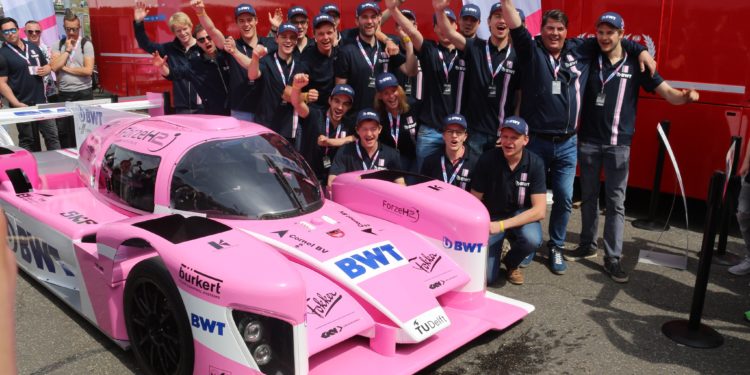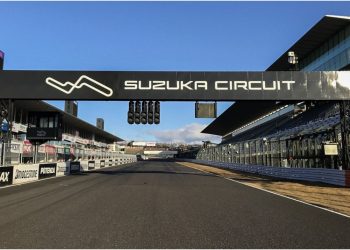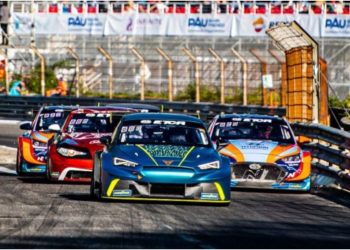Forze is a team that seeks sustainability in all the vehicles and championships formed, for that reason their main objective is to eliminate the carbon footprint but the approach of the Dutch team is a little different from that of the others, since they are considering hydrogen as a of future solutions to power your cars.
Although hydrogen fuel cell racecars are very rare, Forze is the only student team working with high-powered automotive fuel cells in the world.
In a conventional road car, the energy that is stored in the fuel is converted into mechanical energy, by the principle of combustion.
However, Forze cars use a much more efficient concept: The fuel cell on board the vehicles converts the energy stored in their fuel, hydrogen, into electrical energy. This means that the hydrogen fuel cell system can be used to power an electric drivetrain like a battery.
It may also interest you: Heading to Event 4: a recap of the latest F1 Esports race
The fuel conversion efficiency is approximately two to three times greater than that of a conventional combustion engine. In addition, there are some qualities that distinguish hydrogen electric vehicles from their battery electric relatives. The most obvious would be the time required to recharge and the range of use. Hydrogen tanks can be recharged in minutes, like a conventional combustion car, while batteries currently take hours to recharge.
This makes electric hydrogen propulsion ideal for applications where continuous operation and a long driving range are required.
Brands and countries that promote hydrogen use
Major automakers like Toyota, Mercedes-Benz, Honda, and Hyundai are developing fuel cell cars and started selling them in 2015.
Many European countries are investing in hydrogen filling station networks that fit these cars. Germany is a perfect example with 80 hydrogen stations in operation. However, outside of Europe, hydrogen is gaining even more momentum.
Even outside of Europe, hydrogen is gaining even more recognition. Japan, for example, aims to have 40,000 fuel cell vehicles on the road. Additionally, they planned to have entire Olympic Village buildings powered by hydrogen fuel cells during the 2020 Tokyo Olympics.
For more information, visit: forze-delft.nl
Written by | Gabriel Sayago












